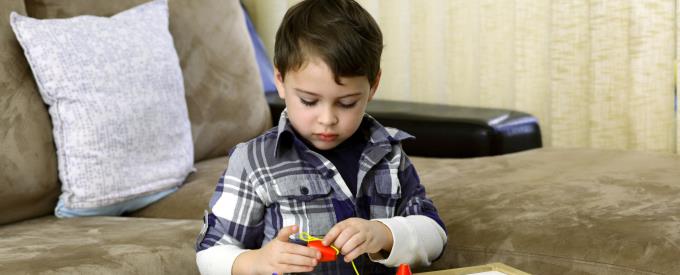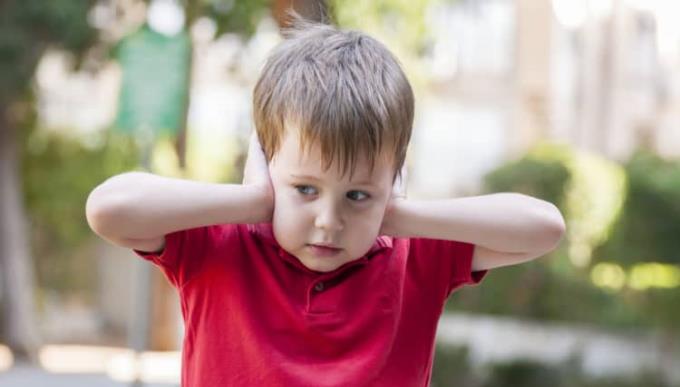Ways to determine an infants caloric needs

Learn how to determine your baby’s caloric needs, including the calories in breast milk and formula, to ensure your infant gets the right nutrition for healthy growth.
Selective silence is an anxiety disorder that prevents a child from communicating in specific social settings, such as at school or in public. However, children can still talk normally with relatives or friends when no one is paying attention or when they are at home.
Selective silence can lead to social phobia. However, determining whether the child has this disease or not is quite a challenge for parents. Let aFamilyToday Health follow up with the following sharing to better understand this situation.
Selective silence is an anxiety disorder that often develops in childhood. If your child has this syndrome, you will find that he or she has difficulty communicating in certain social situations such as at school, when attending skill classes ... However, the child can settle down. behave normally and talk comfortably while at the park or at home with family and friends. Selective silence can adversely affect a child's life. Therefore, you need to detect and treat this syndrome early in your child.
Here are some common signs:
Children are "paralyzed" every time strangers ask
Children can talk normally in certain situations but refuse to talk in some other situations.
Children use hand or face gestures to ask or say things they can say.
The above symptoms lasted for more than 1 month.
Children are too shy .
Children always feel scared or embarrassed when in crowded places.
Children have negative behaviors.
Children's behavior affects learning performance and social communication problems.
Children isolated and distant.
Children always need your attention and always "follow" with you at all times.

Selective silence is a rare disorder and it is more common in children than in adults. Usually, it appears when the child is five years old, but is only discovered when the child reaches school age. Here are some of the causes of selective silence that are common in young children:
Selective silence in young children can be caused by genetic factors. Approximately 75% of children with this syndrome have a parent who has had an anxiety disorder.
Personality can also be the reason for selective silence in young children. This happens when children are too shy, always afraid and want to be isolated from society.
Sometimes a child's behavior and attitudes can also determine a child's behavior. Therefore, if you are too protective or in control, your child could develop this anxiety disorder.
The diagnosis and treatment of selective silence in young children is very important because if left for a long time, it can lead to other psychological disorders, resulting in lack of confidence and isolation. If you notice that your child has any of the above symptoms, see a doctor immediately. The doctor will diagnose whether or not the child has a developmental delay . After the exam, your doctor may suggest that you take your child to a psychiatrist. A psychiatrist will give your child a test to determine what situations the child will use verbally and when not. In addition, the doctor will also find out if the child is having other psychological problems.
Here are some of the most common problems children face with this syndrome:
Children show shyness and often feel anxious.
Children may have a number of language disorders .
Children may be faced with social isolation.
Children may find it difficult to open up relationships.
In addition, the child's inability to communicate in certain social settings can affect their ability to learn and other extracurricular activities at school.
In addition, this syndrome can also make children feel less confident when playing with friends.

Here are some treatments you can try:
Behavioral therapy is an effective way to treat selective silence. This treatment is based on the child's behavior and the causes of his anxiety. First, children will practice their ability to communicate in a small environment, then gradually increase the number of people. This way, the child will be less anxious and feel more comfortable.
This method will be scheduled to treat the child individually. Children, parents, teachers, and experts in the field work together with the many techniques and strategies used. Experts found that a child's anxiety level varies from situation to situation. Therefore, treatments will include a variety of techniques to "beat" the child's anxiety levels.
A cognitive behavior therapist will help change your child's behavior. A specialist will help your child get rid of negative thoughts and feelings of anxiety. In general, children with this syndrome are often frightened when facing strangers and can be "petrified" by certain sounds or voices. This therapy aims to build confidence, emphasize positive values, and reduce anxiety.
Children with anxiety disorders need support from family and friends to fight the disease. A few compliments can have miraculous effects. For example, if your child plays musical instruments well, let him show his talent in front of family and friends. Encourage your child to talk about their passions to people they are comfortable with. Talking to others about their hobbies not only builds confidence, but also helps them practice communication.
Parents play a very important role in a child's treatment. You need to have patience and empathy. If your child doesn't want to speak or react, don't force him to do so. Forcing only makes children more anxious and stressful. Talk to your child about their feelings and the fears and worries they are experiencing.
For the treatment of selective silence, a combination of medication and behavioral therapy may be a good choice. If behavioral therapy is not effective in managing stress, you can give your child medication to help.
Here are some tips on how to take care of a child with selective silence to keep in mind:
Never force a child to talk if he or she is not comfortable.
Tell them that you understand what they are going through. Let your child know that sometimes you feel scared or upset. Encourage your child to talk whenever he or she feels comfortable.
Reassure that everything is fine whether the child explains it with gestures or facial expressions.
If your child talks in public, do not praise him right away as this may cause confusion. Wait until your toddler does this.
If your child feels uncomfortable at family gatherings or at parties, avoid bringing him there until he feels comfortable.
It is important that you give your children love and concern. Be patient and try to reassure your child that everything will be all right.
Talk to family and friends about your child's condition for the best support.
You should seek medical attention as soon as you notice that your child has any of the signs mentioned above. Early detection and treatment can help children lead a normal life.
Learn how to determine your baby’s caloric needs, including the calories in breast milk and formula, to ensure your infant gets the right nutrition for healthy growth.
Discover the top 5 smartest dog breeds in the world, including Border Collie, Poodle, German Shepherd, Golden Retriever, and Doberman Pinscher. Learn about their unique traits and why they are considered the most intelligent dogs.
Discover 7 nutritious and delicious ways to cook egg porridge for babies, including recipes with cheese, pumpkin, tomato, and more. Learn how to prepare baby-friendly egg porridge with our expert tips.
After a series of medical measures they obtained a complete human vascular system profile.
Watermelon is one of the fruits that many people love, not only cheap but also delicious, nutritious and refreshing in the summer. To get delicious watermelon pieces, show off your housewives, your artistic talents to cut beautiful pieces of watermelon.
aFamilyToday Health - The digestive system and body in each baby is different. Parents need to recognize notes to deal with when babies have a food allergy!
Babies need many factors for perfect development. aFamilyToday Health shares with parents things to keep in mind when babies are 8 weeks old so that parents can take care of their babies the best!
Babies need many factors for perfect development. aFamilyToday Health shares with parents things to keep in mind when babies are 18 weeks so that parents can take care of their babies the best!
Babies need many factors for perfect development. aFamilyToday Health shares with parents things to keep in mind when babies are 28 weeks old so that parents can take care of their babies the best!
Babies need many factors for perfect development. aFamilyToday Health shares with parents things to keep in mind when babies are 32 weeks old so that parents can take care of their babies the best!








